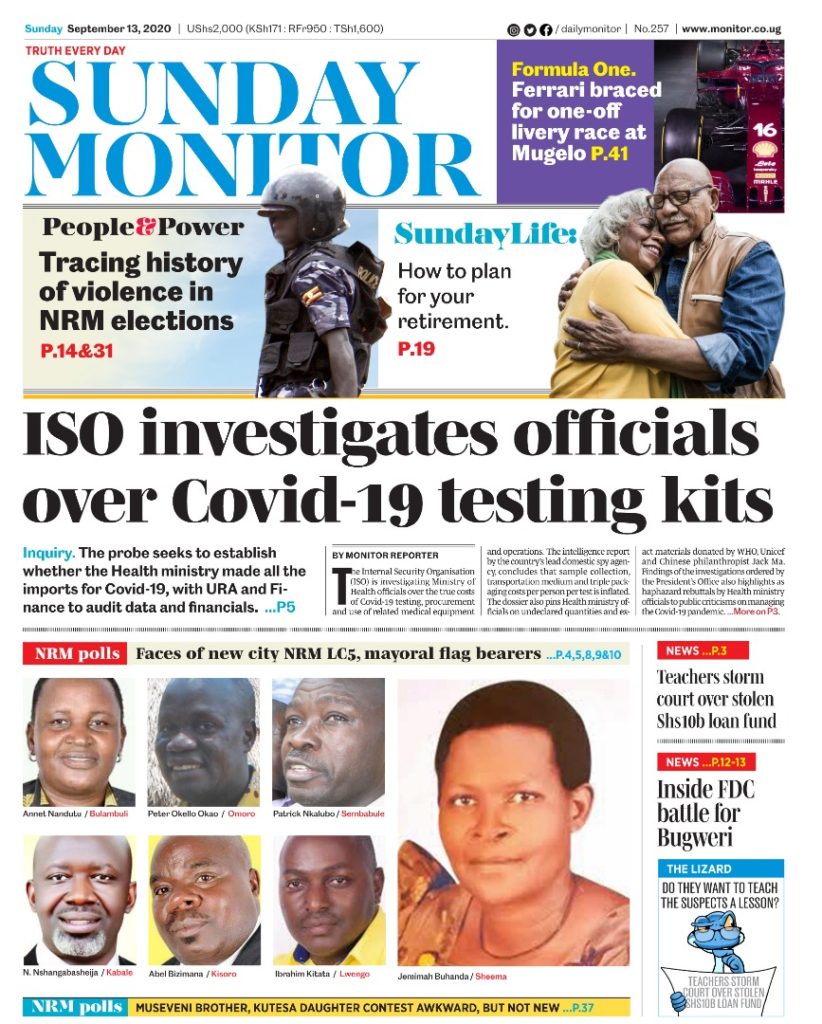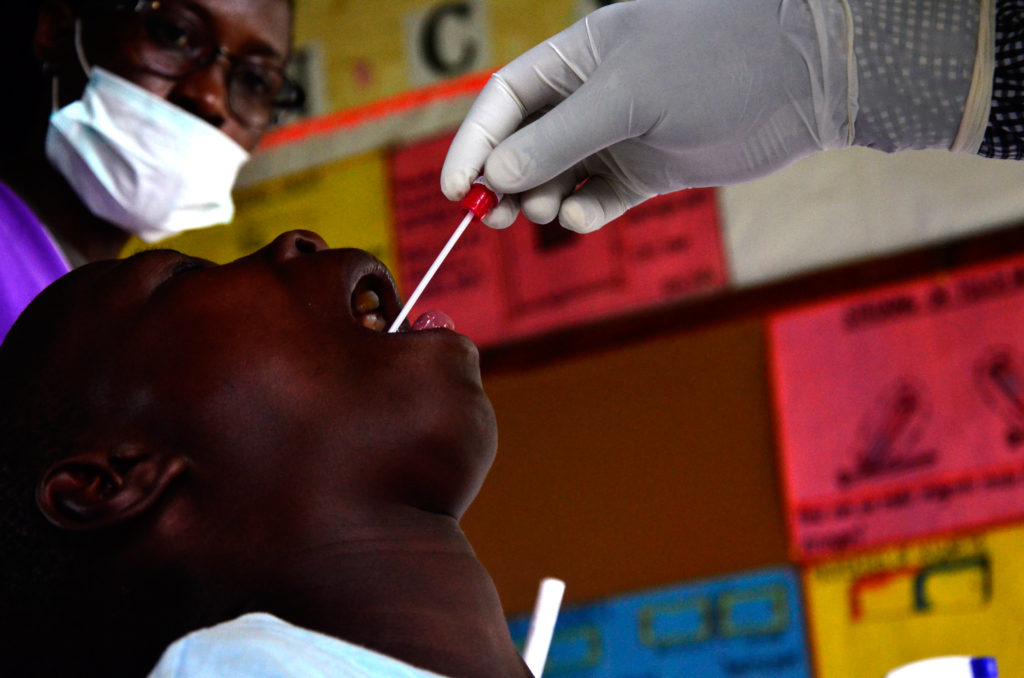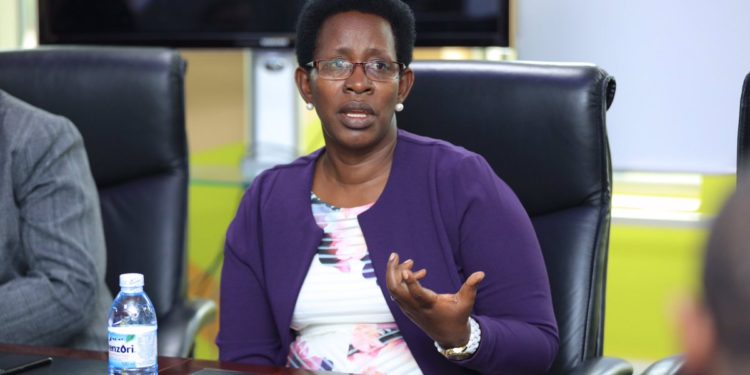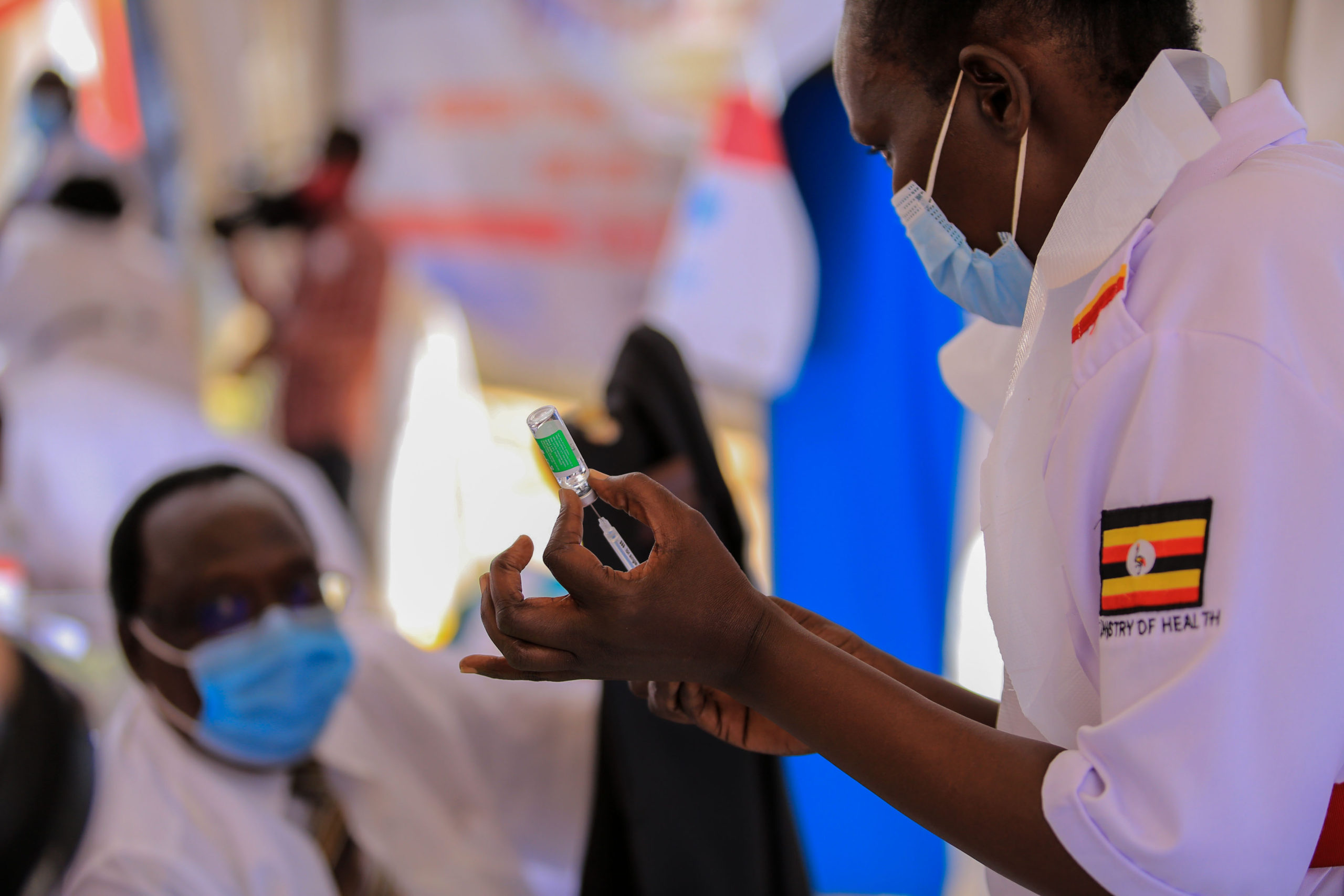By Robert Madoi
The Ministry of Health’s response to the East African Center for Investigative Reporting’s (EACIR) online publication, Vox Populi, and Sunday Monitor’s joint investigation can, with some confidence, be described as a muscular argument for its innocence. The joint report, which was splashed across Sunday Monitor’s front page on September 13, expressly stated that astronomical costs for COVID-19 tests did more than precipitate a particular sticking point for Uganda’s health ministry (MoH).
At the behest of Lt. Gen. Muhoozi Kainerugaba, the Senior Presidential Adviser for Special Operations, the Internal Security Organisation (ISO) was supposedly asked to probe the matter. In response, the ministry pointedly refuted the existence of any inquest although neither ISO nor Muhoozi disputed the development . In a letter authored by the permanent secretary, Dr. Diana Atwine, MoH highlighted a string of conceptual errors that — while not egregious lies or conspiracy theories — were deemed dangerous. Many of the claims needed a fact-check.
Atwine for instance wrote: “The recommended diagnostic technique by WHO (World Health Organization) for diagnosis of COVID-19 is the PCR test. Even after repeated assessment by WHO, the latest guidance issued on 11th September, 2020 continues to emphasize the use of PCR as opposed to the ‘so called cheap, affordable the famous Rapid Nsereko Antibody Diagnostic Test’ that has been pushed by so many middlemen in Uganda which has resulted in continuous attacks in the media.”

Verdict: Broadly correct, but would do with some bit of context.
The polymerase chain reaction (PCR) test — or more accurately its reverse transcription — has anchored the Ugandan response to the pandemic. And with good reason. The PCR technique performs stunningly well by using reagents (essentially a specific mix of chemicals) and a thermocycler to zoom into a particular sequence of organic molecules (nucleotides) unique to the coronavirus. The process, which involves making a copy of both that sequence and a fluorescent dye before detecting either the presence (confirmed case of COVID-19) or absence (negative) of the latter, is at once complex and reliable. What isn’t complex is the fact that rapid antigen tests are not better than PCR tests on many counts. But PCR tests are prohibitively expensive, with low-income countries such as Uganda undertaking 14 tests per 100,000 population. The high-income countries meanwhile manage 290 tests per 100,000 population.
The yawning chasm is, as earlier suggested, down to paralysing challenges to cover the cost of expensive chemical reagents that allow for RNA duplication. All of this means that MoH must do exactly what it has declined to do so far — incorporate rapid diagnostics (antibody or antigen) tests to soften the pandemic’s punch. Before juxtaposing PCR tests with rapid antigen tests, it’s helpful to understand the epidemiology of COVID-19. The novel coronavirus replicates in the upper and lower respiratory tracts, and is transmitted between people through respiratory droplets. For the PCR test, a swab spanning 15 or so uncomfortable seconds is necessary so as to get a clinical sample from which the virus’s genetic material can be detected. Antigen tests are different in the sense that they look for an antigen — nucleocapsid. COVID-19 teems with this antigen.
Unlike genetic tests, antigen tests have sometimes delivered false positives as MoH pointedly noted in a response to legislator, Muhammad Nsereko. Focusing solely on the downsides, though, is hardly helpful. You cannot gloss over the fact that they are not only cheaper than PCR tests, but also have a faster turnaround time. Most importantly, rapid antigen tests do not only make up in speed, cost, and convenience what they sacrifice in accuracy. What MoH didn’t mention about WHO’s September 11 interim guidance on rapid antigen tests is a shift in thinking that basically undergirds a change in tack. In the guidance titled ‘Antigen-detection in the diagnosis of SARS-CoV-2 infection using rapid immunoassays’, WHO states thus: “Patients who present more than 5-7 days after the onset of symptoms are more likely to have lower viral loads, and the likelihood of false negative results with [rapid diagnostics tests] is higher.”
The statement goes on to note thus: “Despite these expected limitations in performance, if correctly performed and interpreted, [rapid diagnostics tests] could play a significant role in guiding patient management, public health decision making and in surveillance of COVID-19.” WHO further recommends that rapid diagnostics tests be used “to respond to suspected outbreaks of COVID-19 in remote settings, institutions and semi-closed communities where [PCR tests are] not immediately available. Positive antigen test results from multiple suspects is highly suggestive of a COVID-19 outbreak and would allow for early implementation of infection control measures.”
WHO also recommends that antigen tests be used “to support outbreak investigations (e.g. in closed or semi-closed groups including schools, prisons, and work-places)…testing of asymptomatic contacts of cases”, and “to monitor trends in disease incidence in communities, and particularly among essential workers and health workers during outbreaks” to mention but three. Rather than dismiss them as “the ‘so called cheap, affordable the famous Rapid Nsereko Antibody Diagnostic Test’”, WHO proffers calm and considered communication. It advises that rapid diagnostic tests that “meet the minimum performance requirements of ≥80% sensitivity and ≥97% specificity” be deployed to mitigate the harm of the pandemic.
Atwine also claimed “Uganda has the cheapest cost of testing per person in the region.”
Verdict: Limited and disputed evidence.
It is terribly hard to fact-check this sweeping statement if anything because, unlike in Uganda, the cost of getting tested across the region remains something of a mystery. It does not help matters that there are different testing options that play into the cost. For the case of clarity, it is important to note that we are talking about a PCR or swab test here. MoH says “anyone who presents to the government designated testing sites with symptoms, or are contacts of confirmed cases are tested FREE OF CHARGE.” (MoH’s emphasis)
The ministry also adds that “any person/agency who wishes to test routinely or at leisure will be expected to pay USD 65$ (Shs 240,500).” This is marginally higher than charges levied in Rwanda. On July 21, the government-owned The New Times newspaper disclosed that voluntary testing for COVID-19 would knock off 50,000 Rwandan francs or nearly Shs 195,000 from the purse of locals. Foreigners part with $100 (or a little over Shs 370,000).

Uganda’s southern neighbour has also widely latched onto batch testing as a possible saviour. The idea has gained other advocates not least because it has helped Rwanda deal with the viral epidemic while halving testing costs. It has also ensured that the country’s contact tracing system does not sputter on.
Put simply, batch testing involves fusing samples of several people in a single tube. Molecular biology methods are then put to great use, with patients getting a clean bill of health once results from the pool test are negative. If however the results from the pool are positive, each patient sample is tested individually.
Worth noting is the fact that the breadth and magnitude of COVID-19 testing elsewhere (for instance in countries like South Sudan and Tanzania) are difficult, in the moment, to truly fathom out. This is especially so because the said countries have kept their cards close to the chest when it comes to all things COVID-19. While this has allowed them to evade the scrutiny applied to others, Atwine’s sweeping statement could force questions the MoH permanent secretary would rather avoid.
_____________________________________________
Our sources
The New Times, Covid-19 testing opens to general public, July 21, 2020
Ministry of Health (Uganda), Response to Sunday Monitor article on cost of COVID-19 tests by permanent secretary, September 14, 2020
Ministry of Health (Uganda), Ministry of Health clarification on cost of COVID-19 testing, June 5, 2020
World Health Organization, Antigen-detection in the diagnosis of SARS-CoV-2 infection using rapid immunoassays, September 11, 2020
World Health Organization, Modes of transmission of virus causing COVID-19: implications for IPC precaution recommendations, March 29, 2020
Worldometers, Reported cases and deaths by country, territory, or conveyance, October 2, 2020
Vox Populi, Covid-19 Bonanza: Ministry of Health under probe for inflating cost of testing, September 13, 2020









